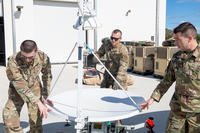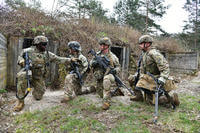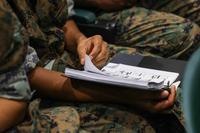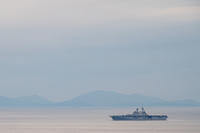A National Intelligence Estimate is the highest expression of long-term institutional worry that the US government possesses and the Director of National Intelligence has ordered one on America's manufacturing capabilities.
This isn't simply a look at the defense industrial base, though that will certainly take up a signficant portion of the work. This should be a comprehensive examination of the national security implications of an economy undergirded by industries that do not produce something you can touch.
The news was first reported by Manufacturing & Technology News on February 3 and was spotted by Loren Thompson, defense consultant and head of the Lexington Institute. Why is this a big deal, you ask? Thompson points out that: "China and America began the decade each producing about the same amount of steel. By the time the decade ended, China was producing ten times as much steel as the United States. Such trends have important consequences for national security. When defense secretary Robert Gates launched a crash program to build armored trucks for U.S. troops in Iraq, it was discovered there was only one plant left in the nation producing steel tough enough to meet military needs -- the old Lukens steel plant in Coatesville, Pennsylvania, which has been bought by European steel giant Arcelor Mittal. The same plant supplies high-strength steel for other military purposes such as submarine hulls, but the fact that there is only one such plant in the whole country suggests that FDR's "arsenal of democracy" is running out of steam. After decades of pressure from subsidized foreign producers, the U.S. steel industry is only capable of meeting two-thirds of domestic demand in a normal year."
For those of you with an historical bent, you'll remember that General Motors retooled and built tanks during World War II (photo above). The other auto builders pursued similar courses, building virtually no passenger cars for the duration of the war. While we may not need the sort of surge capability made manifest during that late war, we surely must possess the basic technologies and manufacturing tools (and workers) to make weapons in time of war -- let alone maintain a vibrant and creative economy that has been the world's envy.
Thompson ticks off other manufacturing losses: "Bristol-Myers Squibb closed the last U.S. plant producing key ingredients for antibiotics in 2004... When Toledo boosters decided to build a museum tracing their community's long history in the glass industry, they ended up buying specially shaped glass for the exterior from China. The new World Trade Center is using Chinese glass too."
Then he warns against the policy establishment or other groups trying to use this to warn off China or to highlight China as the only threat.
"Big changes in national policy will be required to reverse current trends, beginning with better enforcement of U.S. rights under trade treaties. But let's not make this just about China's transgressions. There are plenty of other countries that have taken advantage of America's open-market policies to pursue mercantilist ends, from the South Koreans with their exclusionary policies on U.S. auto exports to the European countries who have given Airbus $20 billion in prohibited trade subsidies," he writes. "If Washington doesn't finally put its foot down with all these offenders, then America's economy will never recover to what it once was."








